videncia aceite sexualidad tecnologías cirugia eurovision camino del cid
"Search Engine Journal" - 10 new articles
- Google-Certified Ad Networks for All AdSense Publishers
- Bing Adds More Sizes Option to Image Search
- Facebook Rolls Out Search Suggestion Feature
- Win a VIP Trip to Search & Social Spring Summit 2010!
- Diamond iPad : A Smart Social PR Campaign with SEO Focus
- ISAPI Rewrite: Addressing Canonicalization and Redirects on Windows Server
- 3 Skills You Need To Be An SEO
- An Unconventional Way to Choose Hosting
- Weekly Search & Social News: 03/16/2010
- Advanced SEO Reporting with SEJ Tools
- Search Search Engine Journal
Google-Certified Ad Networks for All AdSense Publishers
It's been awhile since we last heard anything from Google AdSense. Although it may be starting to lose its luster among website publishers, I would like to think that there are still tons of sites which relied on it to earn some extra bucks. Anyway, the Inside AdSense blog just announced that AdSense publishers will now have access to Google-certified ad network. This was previously allowed only for U.S. and Europan publishers.
Allowing these ad networks would mean more ad networks would be competing now for display ad space on publishers' sites. And this would lead to more ads to appear on sites serving AdSense display ads – more earning for site owners.
So the next time you check out your Ad Review Center account, don't be surprise to see more ad networks queuing up on your display ad space. It's up to you to select which of these ad networks you would allow to display their ads on your sites.
If you're afraid that you might get an influx of ad networks which are not related to the subject of your sites, well, you don't have to worry since some of these ad networks adhere to Google's interest-based ad program which stipulates that only relevant ads are to be served on sites they visit. If you don't like this arrangement, you can always opt-out of this feature anytime.
Check out the SEO Tools guide at Search Engine Journal.
Google-Certified Ad Networks for All AdSense Publishers
Bing Adds More Sizes Option to Image Search
If you're fond of searching for great images and photos available on the web, most often you'd probably encounter search results which don't give you the option for more sizes available for those images. The folks at Microsoft Bing knew this and so they are rolling out a new feature of Bing image search which actually lets you find other available sizes of images.
Bing's "Find more sizes" option not only lets you find different sizes of a particular image yield by your search but other available formats of that image as well.
So, the next time you use Bing's image search, you can click on that "Find more sizes" option to get a page listing where all of the "same" images appear online in various format, resolution or minor editing. You will also see how these images have been used, that is whether the image was used for mockups, editing, cropping, framing and more. This way, you'd know exactly which image is appropriate for your needs and you don't need to click on the image search results one by one.
The new feature also list all the pages that reference that particular image online and you can simply click on any of the page that you think would help you with your research.
Check out the SEO Tools guide at Search Engine Journal.
Bing Adds More Sizes Option to Image Search

Facebook Rolls Out Search Suggestion Feature
Facebook has just rolled out a new feature for its site-wide search box – search suggestion. This is is similar to the search suggestion features offered by major search engines wherein various search terms are suggested via a drop-down menu, as you type the first few letters of your search query.
According to the Facebook blog, this new feature is aimed at helping Facebook users to quickly find and connect with people, pages, groups, events at applications on Facebook based on user's preferences.
Facebook's search suggestion features takes into account not only the people, events, groups and Pages that you are connected with but your friends connections as well. This opens up opportunities for discovering new connections while at the same helping you find the information you need on Facebook.
In addition to specific search suggestion, the drop-down menu also shows a "see more results" which if you click will bring you to a full search results page where you can refine your search further or sort the results by categories. Unfortunately I don't see this link yet on the search suggestion drop-down menu. It would be interesting to see how Facebook's search results page looks like and how it compares with the SERPs of the major search engines. According to Facebook this new feature will be rolled out on the next few days .
Check out the SEO Tools guide at Search Engine Journal.
Facebook Rolls Out Search Suggestion Feature
Win a VIP Trip to Search & Social Spring Summit 2010!
Have you ever wanted to attend a premier industry event as a VIP, get inside secrets from industry leaders, and get treated like a rockstar?
Well this week Search & Social are giving you several ways to make this a reality.
For the launch of the 2010 Search & Social Spring Summit (formerly known as IM Spring Break), the organizers are giving you all kinds of ways to attend the event on their dime. The biggest one is going to be VIP package to the event.
- One FREE pass to the Search & Social Spring Summit
- Complimentary airfare to and from Tampa, FL
- Paid hotel accommodations during Search & Social Spring Summit
- $500 in spending money
All of these prizes, the entire VIP Trip, is valued at $2,000!
To enter, you must visit our Search & Social VIP Contest. Once you sign up you will be sent a promotion code, and whoever gets the most people to sign up for the event using their code gets the VIP prize. That's it! No fluff. Use your mad skills as an internet marketing guru to kill the competition, and earn your VIP pass to one of the best marketing events that took place last year.
We will fly you into Tampa, FL, where the nearby beaches are always featured on the Travel Channel and are listed as the top beaches in the United States. You will check in to the Doubletree Guest Suites that is right on the water and five minutes from the airport.
With $500 in spending money, you can save it and put it in the bank, spend it at Mons Venus or go to the two nearby malls 2.8 miles from the hotel. The most important part of the package is your pass to the summit. This includes getting access into the eight speaker sessions, networking with experts and businesses from across the country, an invitation to the VIP party, admission to casino night and calypso night, and breakfast, lunch and dinner on both days of the conference.
The VIP Trip will be sponsored by Second Step Search, an SEO workflow solution, and Search & Social.
The contest starts today and will go on until April 15, 2010. Enter to win and see what it feels like to receive VIP treatment from Search & Social. You might even find yourself having your own SEOtini girl serving you lunch for the day.
Check out the SEO Tools guide at Search Engine Journal.
Win a VIP Trip to Search & Social Spring Summit 2010!
Diamond iPad : A Smart Social PR Campaign with SEO Focus
This morning I started my day in a rather unqiue fashion which did not involve rushing into the office or trying to find some time to run to the gym. I brewed a cup of coffee, sat down on the sofa and turned on the morning news. MSNBC's Morning Joe is usually my morning news of choice, but today I picked CNN's Headline News and zoned out, catching up on the stories of the morning.
One of the first stories on the "news" was the buzz surrounding a $19,999 diamond encrusted Apple iPad. The first thing that came to my mind was "Is Apple pulling a Victoria's Secret?" but after listening to the story, it was not Apple at all that put out the diamond iPad, nor is there an official diamond iPad. The actual story is Mervis Diamond Importers, a pretty large diamond store in the DC/Northern Virginia area, has announced a prototype diamond iPad which according to Mervis will be available for ordering in June.
Social Media & Blog Coverage
I work on the campaigns of a couple of jewelry clients, and have a little bit of understanding of the diamond market, and a rather large understanding of PR and online buzz, and the first thing that poppedin my head was "they probably just put a bunch of diamonds on an iPad and utilized their public relations people to get this story out … I wonder how the coverage is on the web and if they have this on their site?"
So, the investigative search & social analyst in me led to the finishing of that cup of coffee and the firing up of my laptop. I first searched for "diamond ipad" and the online buzz and coverage surround the Mervis PR campaign was staggering.
Not only are all of the results stories that covered the Mervis announcement over the past 2 days on A List blogs that write on luxury, apple products or gadgets (and I mean A LIST like Gizmodo, Engadget, Luxist and Mashable) but Google is also showing that the Mervis campaign is big enough to serve Google News Results and Real Time in the "diamond ipad" search results. Coverage and links from a rather massive percentage of the Technorati Top 100?!?! Looking at the inbound links to the Mervis page, this portfolio is the best of the best. This is a social media marketer's dream come true!
The great thing about the gadget blog market is that once you're on engadget or Gizmodo … you're on every blog! I also noticed that the Luxist is in the mix. Of course the Luxist and engadget are both blogs that were originally part of Jason Calacanis's Weblogs Inc. and are now AOL properties. Mervis is based in Northern Virgina and AOL is in Reston, VA. I'm guessing someone at Mervis or their PR firm has some pull with AOL. Uh oh … isn't CNN a Turner company too? Connection here?
Hitting one major media outlet helped this Mervis campaign get coverage all over the place. Journalists need something to talk about, bloggers need something to write about. This Mervis news trickled down the AOL ladder into the rest of the blogosphere bigtime! It's Trickle Down Link-o-Nomics in action!
Is there a Diamond iPad?
Public relations and blogger outreach (and TV coverage) aside, what really struck me with this campaign is when I clicked over to the Mervis page :
I had expected a video of the diamond iPad sleeve or enlarged images of Ronny Mervis holding the diamond iPad prototype and you know what the page has on it? It looks like a photoshoped image of a diamond iPad that some high school kid put together! Seriously. I'm not meaning to minimize an intelligent campaign like this, but this webpage probably cost Mervis about $5 and 10 minutes of time to develop. It's insanly cost effective and simple. There's really nothing to it and no solid proof that the Diamond iPad is nothing more than a concept or Mervis just thinking of a way to unload unsold inventory of diamonds. GENIUS!! The Mervis Diamond iPad that everyone is taking about is an IDEA!
Like the Million Dollar Bra, I'm sure Mervis will make one of these diamond iPad prototypes and display it in one of their stores in the DC area, call in the local press, get some foot traffic and maybe even raffle it off. But for the time being … it's a photoshop concept! Well done Mervis!
How SEO Enters the Picture
The final piece of the Mervis Diamond iPad triple threat is the landing page :
mervisdiamond.com/tacori-diamonds
Tacori-Diamonds
For those of you who don't know, Tacori is a diamond setting company, not a diamond company and Tacori is a very competitive term in Google due to the strength of the brand and the predefined intent of the searcher to buy a Tacori product. Mervis already ranks in the Top 10 for "tacori" mervisdiamond.com/tacori-rings and NOW after a couple of days the Diamond iPad page ranks #3 (after shopping and image results) for "tacori diamonds".
I'm not going to go into too much detail here, but I think we're seeing that a smart URL, site structure, relevant content and a massively smart and timely PR campaign is building up to the end result of not only Mervis getting some natural power links and possibly selling some $20K iPads … but the residual result of the store dominating a competitive search term for a long time which will result in long term sales, loyalty and building the strength of their brand. WOW. This is a SEO, social media and public relations campaign for the ages! WELL DONE Mervis :)
Check out the SEO Tools guide at Search Engine Journal.
Diamond iPad : A Smart Social PR Campaign with SEO Focus
ISAPI Rewrite: Addressing Canonicalization and Redirects on Windows Server
In previous posts, I've mentioned the importance of having a clean and crawlable website structure for SEO. The reason is simple. Without one, you're dead in the water from an SEO standpoint. If your content cannot be crawled and indexed, then you can forget about the other aspects of SEO, including content optimization, linkbuilding, etc. As part of my SEO technical audits, it's usually not long before the important topic of canonicalization comes up. Canonicalization is the process of ensuring you don't provide the same exact content at more than one URL. In a nutshell, you want to minimize (or eliminate) the number of URL's that hold identical content, or you can run into duplicate content issues.
A simple example of duplicate content would be a product detail page on an eCommerce website that resolves at five or ten different URL's. That's typically due to filtering (selecting color, size, style, etc.) There are several ways that a website can present canonical issues and you definitely want to have a plan in place for handling those problems. For example, does your site resolve with both non-www and www, do your pages resolve with both http and https, do folders resolve with and without trailing slashes, etc. Handling canonicalization typically includes 301 redirecting requests for potential duplicate content to the canonical url. For example, redirecting a non-www request to the www version of the page.
Sorting & Filtering On e-Commerce Sites Can Cause Duplicate Content If The URL Changes Based on the Selection:
The Importance of Redirects (Beyond Canonicalization)
In addition to handling canonical problems, it's important to have a solid 301 redirection system in place for other situations. For example, are you going through a site redesign, moving core pieces of content, removing campaign landing pages, etc. If so, 301 redirects need to be in place or you run the risk of paying dearly in organic search. There are times I've been pulled into projects after the fact, and I can tell you those meetings aren't pretty. When reviewing organic search trending, you can almost pinpoint the day that changes took place. If even a few dozen URL's change, the situation can be bad enough. But what if hundreds, thousands, or even millions of URL's change? The largest site I ever led SEO for contained close to 20 million webpages and went through a massive redesign prior to my arrival (where millions of URL's changed overnight). Needless to say, that was one of the first major projects we needed to tackle.
Example of Organic Search Trending If 301 Redirects Aren't In Place
ISAPI Rewrite: .htaccess for Windows Hosting
Based on the situations I explained above, what is the best solution for addressing canonicalization, redirects, etc? If you enter some searches in Google, you will overwhelmingly see references to .htaccess and mod_rewrite in the search results. Using mod_rewrite is definitely a great solution….but only for sites running Apache (primarily under linux hosting). What about sites running on windows hosting? Over the past several years, I've received a lot of questions from developers and online marketers about what they should utilize for their .net-driven websites. I started developing with ASP in 1995 and then migrated to ASP.net in the late nineties, so I ran into this topic relatively early on. The good news is that there is a solid solution for windows server, it's relatively easy to set up, and you'll be able to tackle most of what .htaccess can do. It's called ISAPI Rewrite and I don't think it gets as much love as it should! :) I still find many companies running their sites on windows server that haven't heard of it or aren't currently using it. Subsequently, they have either developed a custom solution for handling redirects or aren't doing anything at all with regard to canonicalization.
What is ISAPI Rewrite?
ISAPI Rewrite is an IIS filter that enables you to handle URL rewriting, redirects, etc. via regular expressions. There are two versions you will come across. Version 2 has been in use for some time and it's what I will focus on below. Version 3 enables you use .htaccess files so you can use the same directives that you are using with sites hosted on linux (and Apache server). ISAPI Rewrite (version 2) uses an httpd.ini file to add rewriting rules (similar to adding directives to an .htaccess file). Version 3, on the other hand, was built to mimic .htaccess for Apache. Based on how popular .htaccess has been for handling URL rewriting on Apache, the makers of ISAPI Rewrite developed a solution that enables you to write the same code for .htaccess and ISAPI Rewrite. That was a brilliant move, so you can easily port rules from one site you are working on to the next (regardless of platform). Note, not all directives that are used in .htaccess for Apache are supported by ISAPI Rewrite 3. However, you will find most are. You can read the compatability chart to learn more.
There Are Two Versions of ISAPI Rewrite:
I've used ISAPI Rewrite extensively and I highly recommend it. I've found it to be a great solution for most websites. There were only a handful of times that it wasn't the best solution. For example, we didn't use ISAPI Rewrite for the website I mentioned earlier that contained 20 million webpages. For that specific site, our web architect decided to build a custom URL rewriting solution based on his extensive knowledge of the site architecture (and the size and complexity of the website.) But, that was a rare situation. From a pricing standpoint, ISAPI Rewrite is extremely reasonable. A single server license is only $99, which is a small price to pay considering the impact it can have SEO-wise. If you are on a shared hosting plan, the price might even be better. Your hosting provider might already have the filter installed. More about shared hosting below.
A Note About Shared Hosting and ISAPI Rewrite
If you are running a site on a windows hosting plan and don't have a solid redirection plan in place, then call your hosting provider immediately and ask them to install ISAPI Rewrite. If you have a dedicated server or virtual private server, then you can install it yourself. The installation will take just a few minutes. Note, be aware that some hosting providers will not install ISAPI Rewrite on a shared hosting plan. There are several reasons that they might give you for not installing it, including that the installation could impact other sites hosted on the same server. That said, I have found a few hosting providers that were willing to do this for my sites and client sites, so you just might be in luck. I recommend pushing to have it installed… You can just blame the guy on Search Engine Journal who recommended it. ;) If you are in a situation where your hosting provider won't install ISAPI Rewrite, you might have to get creative with how you handle canonicalization and redirects. For example, you can read my post titled 301 Redirecting HTML Files Without Using ISAPI Rewrite. That was a situation where I refused to take no for an answer, and the final solution ended up working well.
Some Examples of Using ISAPI Rewrite
Now that you're (hopefully) excited about using ISAPI Rewrite, I'm sure you are wondering how it works and what some of the rules look like. Based on the endless number of situations you can tackle, I couldn't possibly include them all in this post. However, I know there are certain situations you will come across often in SEO and I have provided those examples below. For example, redirecting non-www to www, redirecting entire domains to other domains, redirecting specific pages, forcing trailing slashes on folders, etc. The examples provided below are for ISAPI Rewrite Version 2 (since version 3 would be the equivalent of using .htaccess for Apache). Since ISAPI Rewrite is based on regular expressions, some of the directives included below might look foreign. If you plan to write your own custom directives, you should get familiar with how regular expressions work. That's beyond the scope of this post, but is worth noting. Also, ISAPI Rewrite has a solid support site, along with a forum, so you should be able to get answers to your specific questions there if needed.
Note, for the examples listed below, place the following directives in an httpd.ini file located in the root directory of your website. It's optimal if you use a text editor to work on the file. Also, make sure the first line of the file is:
[ISAPI_Rewrite]
Redirecting One Page to Another
Let's say you have a product page that has built up 750 inbound links, but that product is going through a major update. Unfortunately, the URL of the new product page will be different than the old product page. Therefore, you want to redirect the older page to the new one. Hit enter a few times after the first line you entered above and then enter:
RewriteRule /oldproduct.htm http://www.yourdomain.com/newproduct.htm [I,O,RP,L]
Redirecting Non-www to www
This should be one of the first rules you implement. In SEO, you don't want your site to resolve as both non-www and www. To handle this situation, you can use the simple rule below to force any request for non-www pages to the www equivalent.
RewriteCond Host: ^yourdomain\.com
RewriteRule (.*) http\://www\.yourdomain\.com$1 [I,RP]
Redirecting Domain Names
For argument's sake, let's say you own two domain names and one is the core domain that you use for your website. Maybe the second domain is catchy and is great for marketing materials. For this situation, you would want to 301 redirect any request for the second domain name to the equivalent page on the first. You don't want both domains to resolve with the same content (as mentioned earlier in my post).
RewriteCond Host: ^www\.catchydomain\.com
RewriteRule (.*) http\://www\.yourdomain\.com$1 [I,RP]
Forcing Trailing Slashes on Directories
If you have content that resolves directly at the folder level on your website, then this rule will ensure that those directories always end with a trailing slash (versus some resolving with or without a slash). i.e. www.yourdomain.com/directory/ versus www.yourdomain.com/directory
RewriteRule ^/([^.?]+[^.?/])$ /$1/ [I,R=301]
Summary
I hope this introduction to ISAPI Rewrite enables you to effectively address canonicalization and redirects on your windows-hosted websites. I think you'll find it to be a great solution that can handle most of the sites you are working on. If you are new to ISAPI Rewrite, I recommend setting it up (or having your hosting provider install it) and then testing out various situations. My guess is you'll be up and running in no time.
Now, if only canonicalization were easier to pronounce. :)
Glenn Gabe is an online marketing consultant at G-Squared Interactive and focuses heavily on SEO, SEM, Social Media Marketing, Viral Marketing and Web Analytics. You can read more of Glenn's posts on his blog, The Internet Marketing Driver and you can follow him on Twitter to keep up with his latest projects, news, and updates.
Check out the SEO Tools guide at Search Engine Journal.
ISAPI Rewrite: Addressing Canonicalization and Redirects on Windows Server
3 Skills You Need To Be An SEO
Being an SEO's not the easiest job in the world. It's certainly not as simple as understanding, "I need links, and optimized anchor text, keywords and META tags."
How can you develop those links? Why are links important? How does Google actually work? Why does your ranking change in the SERPs?
To answer these questions and more, you need more than just knowing the 'rules of the game.'
There are three very important skills you need to be an SEO, and without these skills, you are at a real disadvantage in the long-run.
1. Communication And Eloquence
You have to be able to effective communicate strong thoughts and messages. Your communication skills will allow you to be a good copywriter, which means you can easily generate content that is link-worthy. Even if you have a great idea for a blog post or an incredibly powerful message to send, you have nothing unless you can properly communicate your ideas in a way that'll evoke an emotional response from other webmasters. Hopefully the response is links to you!
Advanced communication skills also come in handy when you are pitching yourself to other webmasters, bloggers and journalists for links back to your website.
2. Critical Thinking
You need to be able to understand the logic behind Google's algorithm, website architecture and the interconnectedness of the web to be a true SEO. You might know the basic rules for SEO, but you can't be advanced in SEO for a very long time by only knowing 'the rules' as they are set today. This year, Google will change their algorithm about 550 times. That's more than 1.5 times each day!
Mastery of SEO means understanding why Google ranks the way it does, and how Spiders crawl websites and properly index and rank pages. By critically thinking about the How? and Why? you will learn to build your strategy for long-term SEO potential, rather than building your SEO power according to short-lived rules that Google may deem 'adds little weight' to a website's authority.
3. Patience
You also need to understand that your rankings in the SERPS will not always change overnight. A few factors involved in your ranking include i) aggregate traffic and ii) search traffic relative to your search ranking.
- Aggregate Traffic
You can certainly have a spike in traffic one day or one week, but that doesn't mean there will be a consistent demand or growing trend to find you in the SERPs. While your ranking may somehow fluctuate to the front page for a relevant search term (when you were formerly on a deeper page, perhaps the 3rd or 4th) this is may only be temporary.
Unless there is a consistency or growth in the traffic to your site following a traffic spike, you are not likely to maintain those rankings because the SERPs are time sensitive. They mean to show results that people are looking for when they are looking for it, but if the trend of searching for you and your content dies, so will your ranking. Staying on the front page will mean maintaining the traffic you had during your spike or continually growing your traffic.
- Search Traffic Relative To Your Search Ranking
When you're ranked in the SERPs, there is an expectation that you will get X% of the clicks from the number of searches for that term that week or month. For example, let's say (arbitrary numbers) you are ranked 3rd for the search term "Las Vegas SEO." For the 3rd position in the SERPs, you are expected to receive 12% of the clicks for that search term every month.
But if somehow, people are searching "Las Vegas SEO" and click on you a disproportionate amount, or neglect to click on you, your ranking will change. So if you received 20% of clicks for that month, Google may place you in the 2nd position to see how well you perform there – if will you receive the amount of clicks consistent with the proportion of clicks a 2nd position ranking should receive.
If you received 4% of clicks for that term that month, your ranking will drop and you will be 'tested' in that new, lower position to see if you are the right 'fit' for the 5th position in the SERPs.
Danny Wong is an in-house SEO expert for Blank Label, an ecommerce startup focused on custom men's dress shirts designed by consumers with their dress shirt design application.
Check out the SEO Tools guide at Search Engine Journal.
3 Skills You Need To Be An SEO
An Unconventional Way to Choose Hosting
Choosing a hosting provider can be a big hassle. The first time I started paying for hosting was close to ten years ago and since then I have gone through a lot of hosts. And to tell you the truth, up until this year, I just picked the cheapest I could find with the features I needed. I had already gone through learning SEO to make money online and then PHP to make the SEO more effective. I did not want to have to learn one more thing that was better left to someone else.
But this year, Google came one step closer to providing the type of search engine results people want. And they don't want your slow as molasses website. I know I don't. You get about a two count and then I am back at Google looking for the next result. I still have the habit beat into me during phone modem times of opening two or three results in new tabs and letting the quickest one win. So the people at Google decided why not make that part of their ranking algorithm. And I decided, time to look at hosting again.
Hosting can be your weakest link when it comes to the load time of your website. I have seen a lot of emphasis placed on shrinking images, tidying CSS and javascript and compressing web files when the fact of the matter is that you are only shaving milliseconds doing this and every little bit does help, but when the load time of a web page is in the multiple seconds, you are just wasting your time. You need to look at optimizing Apache, PHP and MySql. It is the only place you are going to shave whole seconds off. I have seen 3-5 seconds shaved off the load time of a Wordpress page with just a few MySql tweaks and PHP caching. Once you can load a web page in one or two seconds, then is the time you starting compressing files and images.
I now can say I have developed sites on shared hosting, VPS hosting, dedicated hosting and I even played around a bit with cloud servers, but I don't categorize hosting providers that way. I have a different method. If you are a hosting company and your company does not fall under one of these categories, I am sorry I did not list your type. I just have run into another category personally.
The Unlimited Domains and Email Addresses Host
This host is selling to people who know nothing about hosting. Any physical server can theoretically provide unlimited domain hosting and emails. I can host unlimited sites on my laptop. It says there are 20 there now and when I want to, I can start Apache and run them. But it would be ridiculous to use my laptop as a server connected to the Internet. Some of these hosts even provide price points where for a certain price you can host 3 domains or for a few dollars more, unlimited. With them, the keyword is "unlimited" and it seems like you are getting a deal, the buffet of the hosting deals. It's like saying a pickup truck can hold unlimited payload. It can. It just might not move.
In my experience, shared hosting is shared hosting. You can never tell what you are going to get until you are actually running a site on the host. You are at the mercy of all the other people who host on the same server. And if one of your neighbors is being targeted by hackers, your site goes down with the ship. It may sound paranoid to think this way until it has happened to you. With the price of hosting and storage going down as technology advances, you can get a barebones VPS for the same price as most shared hosting.
So shared hosting has no guarantees because you have a lot of neighbors who share your resources.
The We Will Watch Your Sites, Give You Attitude, and No Control Over the Server Host
These hosting companies usually have the picture of a big building they don't own as a graphic somewhere on their site although some have the random people intently staring at one computer graphic instead. The color schemes of these hosts conjure up words like austere, business-like, solid and possibly, Borg. The sales points here are uptime, 24/7 dedicated support, monitoring, firewalls and scans. They may have pop-up chats that won't leave you alone
But expect to get an attitude when they get the idea that you think you know what you are talking about and you are refused root access to finally just go in and do it yourself. And the monitoring. I have never had one hosting provider in my life tell me my site was having issues before I did. But all of these buzzwords and specialized names for open-source software you can run yourself give corporate types a warm, fuzzy feeling and the price tag probably does to, if they show a price. Some don't. You have to call. I never have. Gave me the car lot vibe.
If you are running specific software that you know how to optimize with specific Apache, PHP and MySql settings to make it run at peak performance, most hosting providers in this category won't know this unless you tell them. I am being general here, but their job is security and server performance more than PHP/MySql performance which varies wildly with your traffic and the software you are using. So you still have to have the knowledge to tell them the settings you need and that is only one step away from doing it yourself.
The Here's Your Box Host
Which I eventually got around to. And it was hard finding one. Hosting is a constantly booming industry, the picks and shovels of the Internet. You have to dig deep into the search engines and know exactly what you are looking for in VPS or dedicated host. And eventually you will run into the true sales points when it comes to performance:
- RAM
- CPU
- Hard Drive
- Data Transfer Rate
After all, many web hosts use open source software, the same software you can install on your own host. And that is what they monitor. The only real difference is in the hardware and if your hosting provider is not gloating over their hardware, then maybe that is the weak link.
So I was given the bare bones, an SSH connection and the rest I had to install myself, including installing PHP, MySql and the rest. But after I had jumped from host type 1 to host type 2 and never found any host that was great, I had learned a few things. I learned that VirtualMin is sweet open source hosting control panel and that Linux has this magical thing called yum that can install just about anything you need in an instant. It is not for everybody, but I now have a few sites hosted on various barebones VPS and dedicated hosting configurations that load faster than any host I have had before. That combined with host monitoring software that runs on a computer that never shuts down keeps everything under control.
And again, this post was part humor, part fact and just where I am at now when it comes to hosting. My blog itself is still on shared hosting with one of the biggest hosting providers in the United States. At one time, I just thought it was simpler to do it that way. I am just telling you this because it goes down all the time but it too will soon be moving to it's own VPS.
Stephan Miller blogs at StephanMiller.com.
Check out the SEO Tools guide at Search Engine Journal.
An Unconventional Way to Choose Hosting
Weekly Search & Social News: 03/16/2010
Welcome to another edition of '7 Days of Search and Social' – last week was a pretty damned busy one out in the search news/blogging space and we have a TON of good reading this week. From compliant code for SEO to the ever popular (debated) SEO standards and a whack of search geeky goodiness, there was plenty out there. Oh and what's with Matt lately? There have been some funny ones over there (Video section) the last two weeks. Thanks for the giggle bro. I hope this editon finds you well… there's def something for everyone.
And away we go…
Lead Story
Is compliant code an SEO ranking factor?
Over the last year or so I'd had the conversation many times about SEO and valid mark-up. For the record I am of the mind-set it is more a factor of good webmastering than it is anything. Sure, if the site lags bad or even worse, doesn't render, it certainly can have an SEO effect, but from a ranking perspective, no… not a signal…ain't gonna happen.
Interestingly I was going to pen a post about it for the SEOBS blog (for me pal Edward), but now? No point… its been beaten to death last week. Witness;
- W3C Validation for SEO; Myth and Reality – SEJ
- W3C Validation for SEO? Separating Facts From Fiction – Springboard SEO
- W3C Compliance – Not an SEO Factor? - SEO Consultants
- W3C compliance – is it a requirement? - GW Blog
And I've spoken to a Googler whom said;
"There are many good reasons to validate markup — for instance, cleaner code might display better on mobile phones or be handled better by screen readers — but ranking on Google isn't one of those reasons. There are currently too many pages with original and compelling content but poor markup for us to justify favoring well-validating pages. So nothing's changed since 2006 on this front."
Hopefully we can leave this one alone for the moment. That being said, it really can't hurt to take some of Edward's thoughts to heart as it does still make good sense. It simply shouldn't be considered a 'ranking factor'.
Quick Nav Links – Talk of the Town – Geek Central – Social Search – Local SEO – Videos – Tools – Patents -
Talk of the town
A modest proposal for SEO standards – was so damned tempting as the lead story, I thought I'd give it a little extra space ( Owe it to 'Edward' to at least give the other a leg up). As long time readers and old horses would know, 'standards' has been a long running source of discussion and frustration in the SEO world. When someone I respect speaks about it (Michael, and Bill before that) I tend to take another look. Give the above post a read and consider writing about it or otherwise discussing it.
He followed that up with 'A modest proposal for SEO training course standards' and in talking with him over the weekend he also mentioned; Can we talk SEO? In one SEO lexicon? – that post is really a good starting point even. Will we ever nail it? I sure hope so.
Advice for a New Internet Marketer (or How to Spot Internet Marketing Snake Oil) – was a great post on a few levels. For starters I really enoyed the rant quality to it. Secondly, she separated link building from SEO… something a LOT of peeps don't seem to grasp. Great stuff T!
Have Google Index Your AJAX, Here Is How – some good tips on a topic we've been hearing more and more of lately. Seems Google has a good grip on not only JS, but its super-powered kin, AJAX. Certainly worth reading if applicable to your situation.
3 Tricks on SEO & User Engagement – I was going to put this one into the 'Weapons' section, but I liked it so much, it was worth giving more attention to. While I am still in the process of testing the concepts, its some solid stuff regardless. I am curious if 'Tip 3' qualifies as cloaking, something to look into.
Website Redesign, SEO, & Video – Keys to E-Commerce Future – for the universal search geeks out there, this post once more shows the value of video. A quick tip for you; not many SEOs are good at video. M'kay? Thars gold in them 'thar hills!
Picking Wise Search Projects – Lyndsay was getting into what I like to call 'pre-qualifying clients'. It is a safe bet that one doesn't want to take each and every client that rolls in… Some common sense tips here for grading yours.
Study: Searches Ignore Real-Time Search Results – wasn't really a big surprise to most search geeks. Barry also has some links to convos and more to the story. While I won't call it dead just yet, it's current iteration leaves plenty of room for improvement.
4 Things That Are Getting Me Rankings, Right Now – 'Dave Bait' is alive and well this week, but have no worries, Glen is a kick ass kid! And his post teaches us once more, that SEO isn't all about links as many would have you believe… Ya know?
20 Things You Can Teach a HIPPO to Make Your Website Better – Speaking of bait, this post from Todd came up on the radar this week thanks to a mention of zee Dojo. But as always, entry does actually have a bar around here. Todd does a great job of
A Practical Guide To Information Architecture Changes – being a more 'content centric' SEO, information architecture is something I pay attention to. From CMS to architecture, this is a solid post worth reading. Even if you aren't planning changes… good elements to remember.
Migrating to a New Domain and URL Structure – speaking of IA and site changes, this post on SEJ was also solid in that regard. Between the two, you should have a good framework.
71 Technical Factors For Backlink Analysis (From 30 Link Building Experts) – Part 2 – Garrett French is at it again with his mega-geek round ups. See how I don't use the word 'experts' G? Hee hee. OK, nit picking. Some solid advice all-around.
Google Responds To Privacy Concerns With Unsettlingly Specific Apology – and last, but certainly not least, a good laugh at Google's expense (they can take it). I truly had a good search geeky guffaw with this one. Enjoy.
Honourable Mentions;
- Targeting Multiple Keywords vs. Singular Keyword Focus – SEOmoz http://www.seomoz.org/blog/targeting-multiple-keywords-vs-singular-keyword-focus
- Crafting SEO Landing Pages http://www.seobook.com/crafting-seo-landing-pages
- SEO – Love It or Hate It – SEO People
- How to handle SEO client problems – Solo SEO Blog
Quick Nav Links – Talk of the Town – Geek Central – Social Search – Local SEO – Videos – Tools – Patents - Search Geek Central
Quick Nav Links – Talk of the Town – Geek Central – Social Search – Local SEO – Videos – Tools – Patents -
Search Patents
Microsoft
Yahoo
Techniques for clustering structurally similar web pages based on page features
/end SOSG session
Quick Nav Links – Talk of the Town – Geek Central – Social Search – Local SEO – Videos – Tools – Patents - '7 Days of Search and Social' is a joint effort from Search Engine Journal and the SEO Training Dojo to bring you the latest in SEO and Social Search news. Each week (on Tuesdays) we'll be posting the highlights of the most recent (SEO Geeks) newsletter here on Search Engine Journal.
Be sure to grab the SEJ feed for the latest or sign up to the SEO Dojo newsletter to get it straight to your inbox.
Check out the SEO Tools guide at Search Engine Journal.
Weekly Search & Social News: 03/16/2010
Advanced SEO Reporting with SEJ Tools
One of the most powerful features inside SEJ tools is its advanced reporting ability which makes it a lot easier to create pretty, fully-customized and data-rich reports for clients.
With SEJ tools you can choose among multiple templates (or create your own), schedule reports, include any sets of data, etc.
1. Create a branded template
The first thing you may want to do is to create your branded template. To do that, hover over REPORT tab and choose BRANDED TEMPLATE. From there you will be able to see the existing templates as well as create your own:
- Upload your logo;
- Set the template colors;
- Set the text alignment;
- Name your template;
- Assign the template to the whole account or the current profile:
You will the be able to preview your new template:
2. Create a reporting template
While the branded templates create the look and feel, the reporting templates stand for the type of data it contains. For example, you create separate reporting templates for link building, SERPs tracking, keyword research, etc.
To create the templates, hover over REPORT tab and choose REPORT TEMPLATE. Give your template a name (e.g. "Link Building") and proceed to the details to add the type of data you want the report to contain.
Click on a section to reveal the available report options. Then click on a report option to add it to the report. For example, for link building report, we will need LINKS section and then DETAILS. There we will also have to specify the status of the links we need to appear in the report: Active, Requested links or both:
3. Create a report
Now that you have a branded and reporting templates, you can create your first report.
The Report Wizard can be accessed by hovering over the Reports tab and clicking on Report Wizard.
When creating a report you can choose a name for your report, a template (if you have created one), an option to make the report a scheduled report, and an option to customize the date range of the report.
Once you're done, click on the Create Report button.
Look through the report sample (it will take you just a few seconds if you have created the templates before that. If you haven't, you will need to add the data types, like we did in the step 2).
4. Schedule reports
For your convenience, you can schedule reports you plan to make regularly. To schedule a report, click on the Schedule checkbox (when creating a new report).
Clicking the checkbox will reveal scheduling options. You will be able to specify Frequency (Weekly, Monthly, Daily, Quarterly), When (the day of the week when the report should be created), Date Range (for the data analysis period: e.g. date from the last month, data from this month, etc) and the ability to email the report.
If you check an email option, you'll need to provide the recipient's email address (as well as your email address if different from the one used for SEJ tools account), email subject and create some short message to go into the email body:
Another good thing to do is to set up weekly templates to be sent to your email box for you to easier track the campaign.
Check out the SEO Tools guide at Search Engine Journal.
Advanced SEO Reporting with SEJ Tools

Your requested content delivery powered by FeedBlitz, LLC, 9 Thoreau Way, Sudbury, MA 01776, USA. +1.978.776.9498
miércoles, 17 de marzo de 2010
- 10 new articles
Suscribirse a:
Enviar comentarios (Atom)
Seguidores
Archivo del blog
-
▼
2010
(127)
- ► septiembre (7)
-
▼
marzo
(36)
- <!-- AOL_MESSAGE --><!-- Your FeedBlitz Updates ...
- <!-- AOL_MESSAGE --><!-- Your FeedBlitz Updates ...
- <!-- AOL_MESSAGE --><!-- Your FeedBlitz Updates ...
- <!-- Centro de Información WPERU --><!-- ...
- <!-- AOL_MESSAGE --><!-- Your FeedBlitz Updates ...
- <!-- AOL_MESSAGE --><!-- Your FeedBlitz Updates ...
- <!-- AOL_MESSAGE --><!-- Your FeedBlitz Updates ...
- Del iPhone al iPad
- <!-- AOL_MESSAGE --><!-- Your FeedBlitz Updates ...
- <!-- AOL_MESSAGE --><!-- Your FeedBlitz Updates ...
- Best-ever Freeware"
- <!-- AOL_MESSAGE --><!-- Your FeedBlitz Updates ...
- <!-- AOL_MESSAGE --><!-- Your FeedBlitz Updates ...
- <!-- AOL_MESSAGE --><!-- Your FeedBlitz Updates ...
- <!-- Carrero» , Carrero. David Carrero y Jaime C...
- <!-- AOL_MESSAGE --><!-- Your FeedBlitz Updates ...
- <!-- AOL_MESSAGE --><!-- Your FeedBlitz Updates ...
- - 10 new articles
- <!-- AOL_MESSAGE --><!-- Your FeedBlitz Updates ...
- <!-- Carrero» , Carrero. David Carrero y Jaime C...
- <!-- Blog de informatica --><!-- ...
- <!-- AOL_MESSAGE --><!-- Your FeedBlitz Updates ...
- <!-- AOL_MESSAGE --><!-- Your FeedBlitz Updates ...
- <!-- AOL_MESSAGE --><!-- Your FeedBlitz Updates ...
- A Time and Season for Search: How Data Mining Can...
- <!-- Carrero» , Carrero. David Carrero y Jaime C...
- <!-- Carrero» , Carrero. David Carrero y Jaime C...
- <!-- Carrero» , Carrero. David Carrero y Jaime C...
- Watch the 2010 Oscars : Academy Awards Online
- Google Buys Online Collaboration Operator DocVerse
- <!-- AOL_MESSAGE --><!-- Your FeedBlitz Updates ...
- <!-- Carrero» , Carrero. David Carrero y Jaime C...
- <!-- Carrero» , Carrero. David Carrero y Jaime C...
- <!-- AOL_MESSAGE --><!-- Your FeedBlitz Updates ...
- Twitter Newsletter 2010 - Edition #1
- <!-- AOL_MESSAGE --><!-- Your FeedBlitz Updates ...



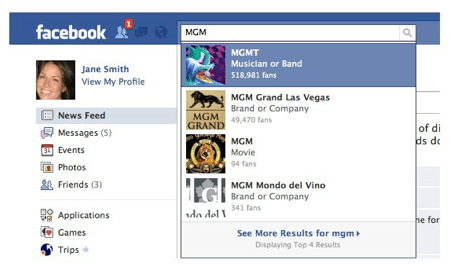



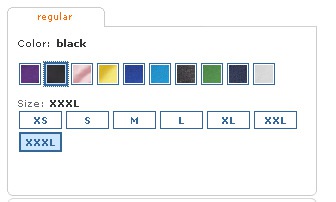
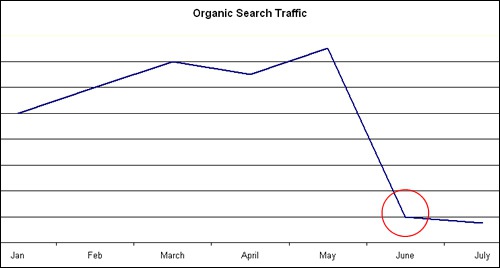

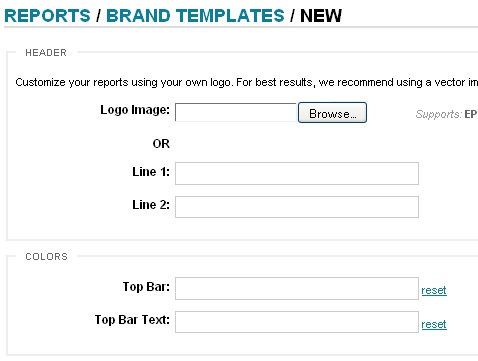

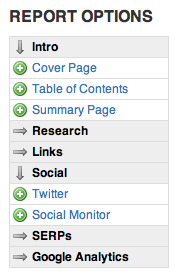
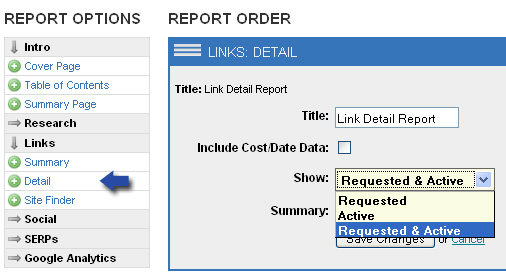
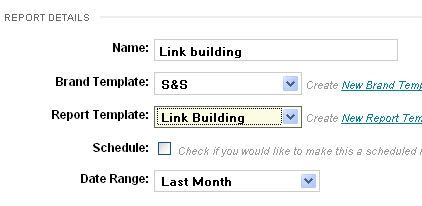
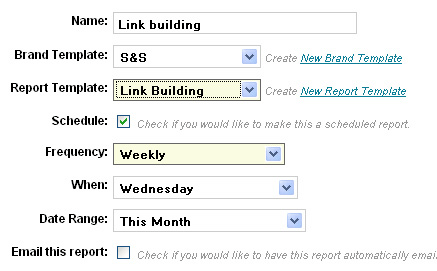
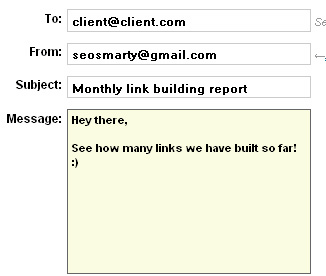

No hay comentarios:
Publicar un comentario